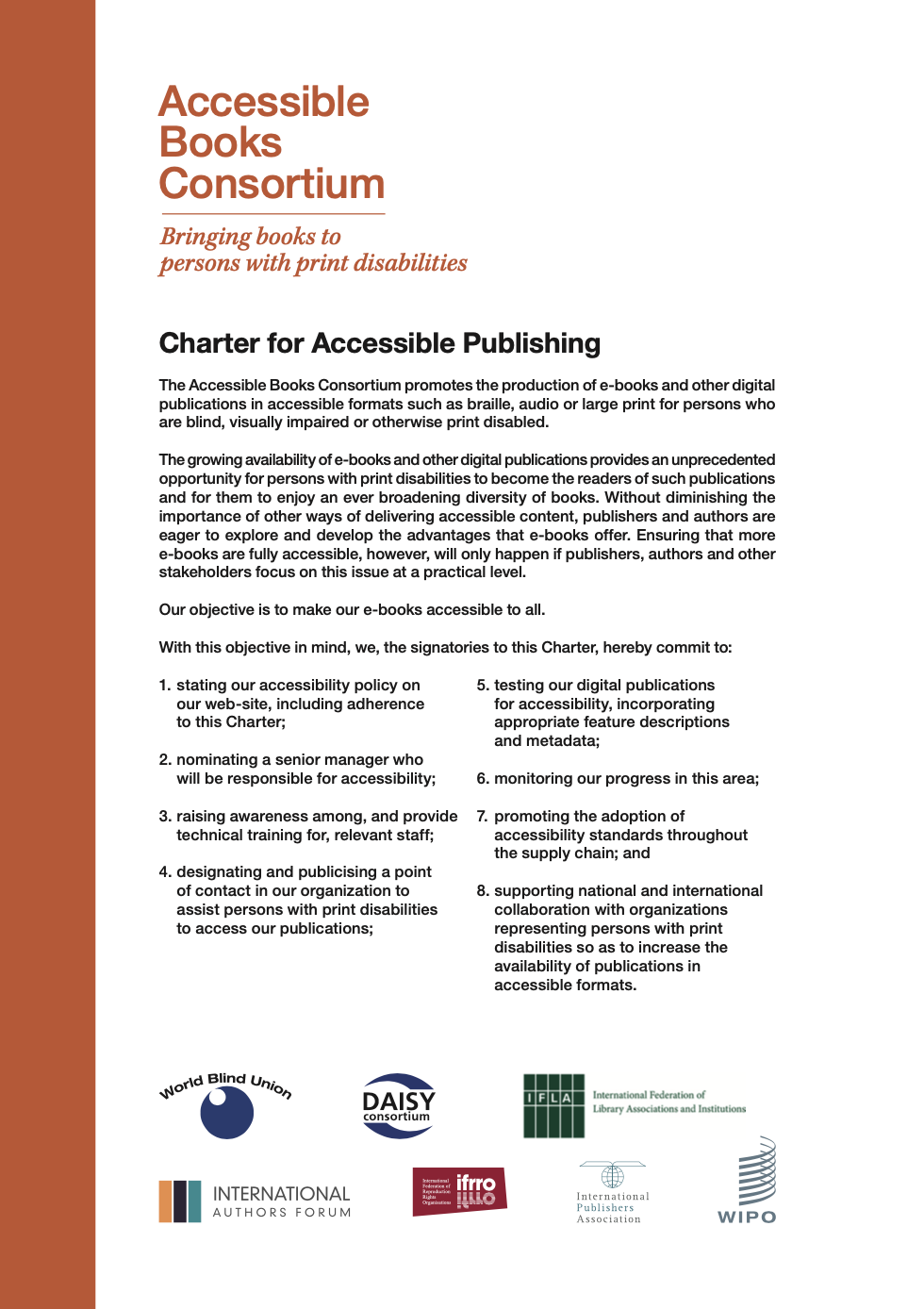Social and environmental responsibility
Environmental Responsibility:
We have an overarching commitment to:
- Improve our environmental performance
- Reduce our carbon footprint
- Use natural ressources responsibly
- Eliminate any negative impact of our activities on endangered forests.
We are meeting those commitments by:
- Measuring and analyzing our carbon footprint on a regular basis, objectively and with the best tools available.
- Reporting on our performance.
- Identifying the elements of our activity that need correcting or improving.
- Systematically ensuring that we source our products from suppliers who share our philosophy.
- Increasing our recycled and certified paper content with a preference for PEFC® or FSC® certification.
- Raising the environmental awareness of our publishers.
- Raising the environmental awareness of retailers and consumers.
- Sharing our findings and expertise with other companies in the industry.
- Improving our processes on an ongoing basis in order to make them more environmentally friendly.
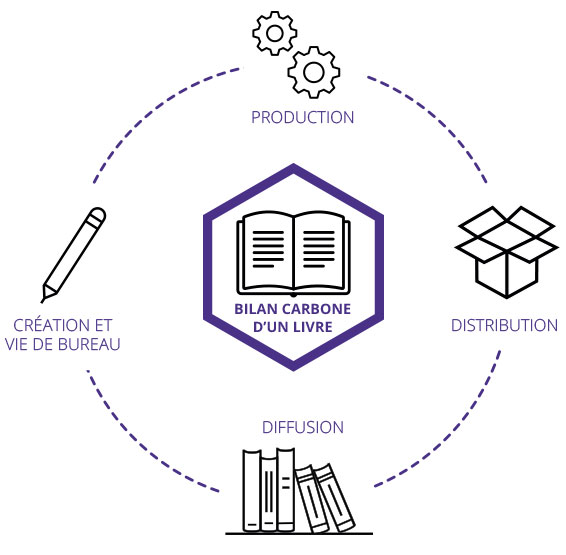
Each of our territories defines its own environmental policy. They all contribute to the Group’s progress in limiting its overall carbon footprint.
- In France, Hachette Livre remains the only publisher to commit to a “scope 3” carbon footprint analysis – i.e., one that includes emissions by all of its suppliers – every three years. At the same time, the Group has introduced carbon labeling of its books, informing readers of the carbon footprint of the book they are holding. Changes made to the production, circulation and distribution phases on the heels of the first assessment in 2009 have reduced Hachette Livre’s carbon footprint in France by 18.5% over ten years. In its ongoing efforts to reduce its carbon impact, the Group is at the forefront of innovations such as digital print-on-demand, and is promoting practices throughout the industry that could potentially reduce the carbon footprint connected with publishing. In addition, the Group has decided to begin action to reduce its consumption of plastic over the coming years.
- One hundred percent of the fiber used to produce the books published by Hachette Book Group has obtained Forest Stewardship Council (FSC®) or Sustainable Forestry Initiative (SFI®) certification. HBG conducts fiber testing to ensure that its supply chain is adhering to the company’s environmental standards. The company’s environmental targets for 2017-2020 keep HBG focused on continuous improvement in the areas of production, paper sourcing, and energy efficiency in its facilities.
- In 2019, 96.5% of the books published by the trade publishing companies of Hachette UK were printed on FSC® accredited paper, and 91.5% of Hachette UK’s total output was printed on FSC® accredited paper. Hachette UK’s distribution warehouses recycle over 90% of their waste and Hachette UK’s headquarters, Carmelite House, sends zero waste to landfill. Hachette UK has been awarded three trees by the WWF (World Wildlife Fund) – the highest level of certification for sustainable forest management.
- In 2019, the Anaya Group (Hachette España) established a multidisciplinary working group specifically devoted to corporate social responsibility (CSR). Protecting the environment is one of Anaya’s priorities, so it has pledged to use only PEFC®-certified paper to print its books and is encouraging its suppliers to embrace that commitment as well. Anaya is also reducing its consumption of plastic, and disposable plastic in particular: plastic bottles and bags were removed from its workplaces in 2019 and a plastics recycling system was implemented. In coming years, the Group aims to continue making more efficient use of resources and to cut its carbon emissions.
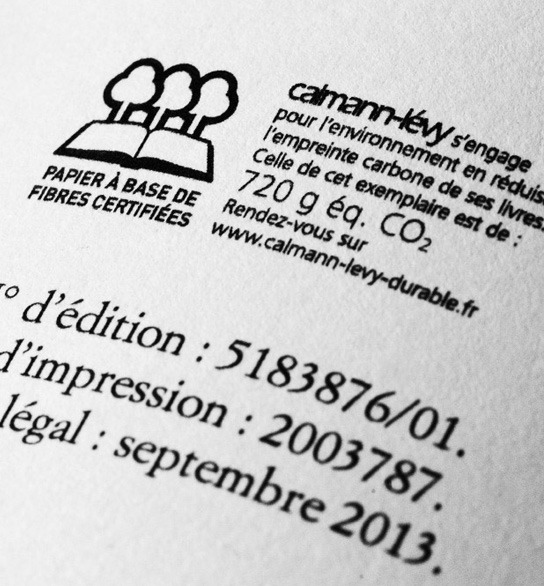
Social Responsibility:
In France,
- Hachette Livre has established a project meant to secure the jobs of workers with disabilities and help newcomers with disabilities feel at home in their new environment. In 2019, Hachette Livre joined about 100 other French companies in signing a Manifesto to promote economic inclusiveness for people with disabilities. The statement included 10 commitments on behalf of employment for the disabled.
- It has signed a sponsorship agreement with the elite, internationally recognized French university Sciences Po to foster diversity and equal opportunity. The company is lending support to the university’s recruitment program aimed at students from underprivileged urban areas.
- Hachette Livre has also partnered with Nos Quartiers ont des Talents (NQT), an organization that promotes employment opportunities for recent graduates hailing from low-income communities.
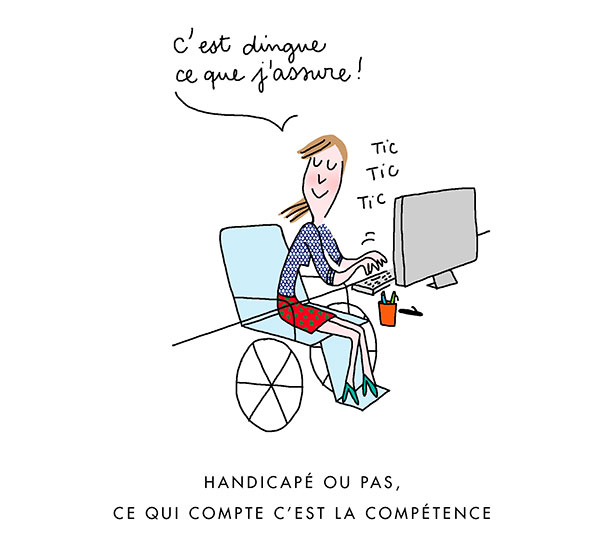
In the United Kingdom,
Changing the Story is the name of Hachette UK’s diversity and inclusivity movement. Changing the Story’s initiatives include highly engaged employee networks with over 800 members; a comprehensive program of outreach to schools, colleges and other institutions to inspire the next generation of publishers through talks, workshops and mentoring schemes, facilitated by all staff having an allowance of two days off each year for volunteering; a paid internship program and a new literary prize, the Mo Siewcharran Prize, for people from BAME backgrounds.
In the United States,
At Hachette Book Group, the Diversity Committee spearheads initiatives to keep diversity at the forefront, and specifically, to highlight the diversity of HBG’s publishing programs. One initiative is Read Our World, with the mission to promote acceptance, education and open dialogue through books with diverse authors, characters, and messages. HBG also partners with associations that promote diversity in the book publishing industry, such as We Need Diverse Books, The Children’s Book Council and the Association of American Publishers.
In Spain,
- The Anaya Group (Hachette España) is continuing to place a special focus on promoting respect for diversity, values education and gender equality in all of its publications, such as the Feminismos collection from Cátedra and the Pioneiras books published by Xerais, among others.
- The highly successful non-profit project Juega limpio: el valor educativo y social del deporte, published by Anaya in cooperation with the Isabel I University, had a first print-run of 13,000 copies and is designed to teach the values of sport in schools.
- In addition, Anaya is furthering its commitment to support a number of initiatives that promote cultural and educational activities that foster integration, in cooperation with various nonprofit organizations.
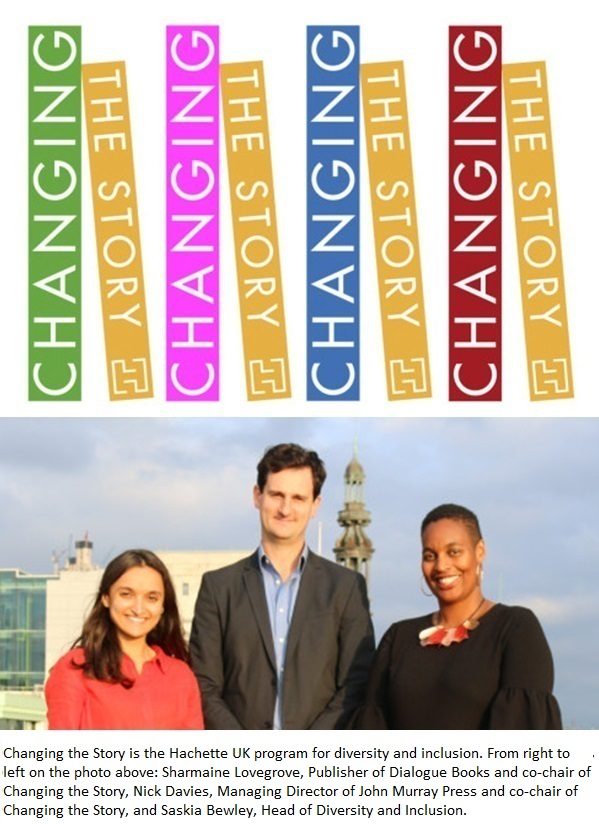
Making Our Books Accessible:
Digital technology plays a vital role in ensuring that books are accessible to readers who are blind, visually impaired or otherwise print-disabled. Hachette Livre has moved to address this need at an early stage of all digital book production. Since 2018, every book published by an Hachette Livre publishing house, both fiction and nonfiction, is “born accessible” in a digital version available upon publication; in other words, it can be enjoyed immediately by readers who use a Braille keyboard or a text-to-speech function on a smartphone, computer or reader. In September 2019, Hachette Livre, joined by Hachette UK and Hachette Book Group (USA), signed the Charter for Accessible Publishing* developed by the Accessible Books Consortium** as a pledge of its commitment to extend this design principle to its English markets.
Hachette Livre publishing houses are also taking steps to expand the range of accessible content they offer. Hachette Romans, which publishes both classic works and original fiction for French schoolchildren, has signed a partnership with Mobidys to convert thirty of the titles in its catalog to the company’s FROG format, which is designed to aid dyslexic readers, in audio, digital or print versions. As a result of that agreement, students in schools subscribing to the service have gained access to a much wider range of reading material. For its part, Hachette UK joined forces with the Royal National Institute of Blind People (RNIB) in November 2019 to place 33,000 books from its catalog on the RNIB Bookshare platform, where they are available free of charge. The platform offers a library of textbooks that are designed to be read electronically or have been adapted to the needs of blind, visually impaired or dyslexic readers.
*The ABC’s Charter outlines eight principles for producing digital publications accessible to the print-disabled. Specifically, it calls on publishers to implement standards for accessibility prior to distribution, conduct testing of digital publications and include appropriate metadata. www.accessiblebooksconsortium.org/portal/en/charter.html
**The Accessible Books Consortium, established at the initiative of the World Intellectual Property Organization (WIPO), aims to increase the number of books printed worldwide in accessible formats for people who are blind, have low vision or are otherwise print-disabled.
